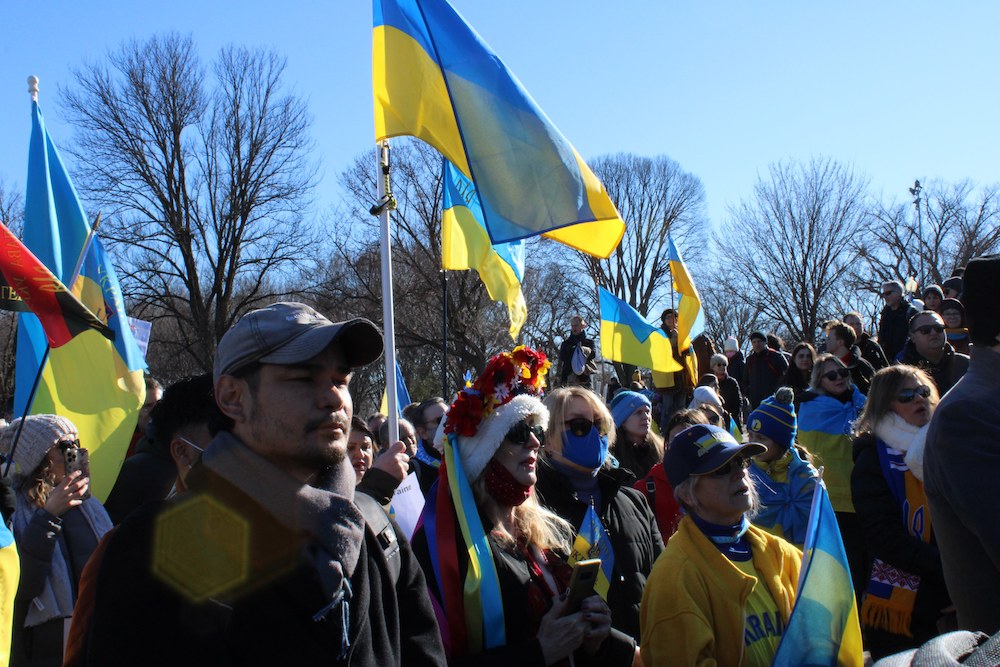WASHINGTON, March 1 (UPI) — Russia’s invasion of Ukraine amplifies Sino-Russian threats to world order, experts and lawmakers agreed during a hearing Tuesday.
“China is watching how the democratic nations of the world respond to Russia,” said Sen. Jack Reed, D-R.I., who chairs the Senate Armed Services Committee, during the panel’s Tuesday’s hearing. “This urgent reality should push us into finding ways to achieve maximum efficiency.”
Ukraine is a catalyst for improving the United States’ strategic response to these threats, Heather Conley, president of the German Marshall Fund, told lawmakers.
“One of the strongest elements of our national powers are alliances we built up over decades,” said Sen. Tim Kaine, D-Va.. “And that’s a weakness, both for Russia and China, and one of the reasons they’re coming together.”
Recommendations from Conley and others include reducing Chinese and Russian influence on the American economy and continuing to provide humanitarian, military and intelligence aid to Ukraine.
Some Republican lawmakers focused on what they said the Biden administration should have done before the invasion, such as taking preventative action against Russia by enacting sanctions or delivering more weapons to Ukraine.
“I don’t know why we didn’t say, ‘Listen, this is gonna be your sanctions the first day you walk across that border,'” said Sen. Tommy Tuberville, R-Ala. “Or we should have given weapon after weapon in Poland and Romania at the beginning.”
“We were concerned about escalating a crisis,” Conley answered. “In hindsight, that was not correct.”
President Biden’s second tranche of economic sanctions have been an important step in “painfully drain[ing]” the bank accounts of Putin’s inner circle, Conley said.
Sanctions should be increased until Putin changes his course – and can only be considered a success if he does so, said Roger Zakheim, director of the Ronald Reagan Presidential Foundation and Institute.
“We can only take comfort in this unity if it results in Russian rollback. Until that time, there’s nothing really to celebrate or applaud,” Zakheim said. “There’s only work to be done.”
When asked by GOP Sen. Tom Cotton of Arkansas whether preventative action, such as arms shipments to Taiwan, should be used against China, Zakheim responded, “Absolutely, senator,” adding, “That’s the clear takeaway from what happened in Ukraine.”
Republicans also raised a familiar argument about rising inflation.
“We have really seen the catastrophic consequences from reliance on our adversaries for energy,” said Sen. Joni Ernst, R-Iowa. “Clearly, domestic policies can’t be untangled from other considerations when it comes to our national defense.”
The United States and other world powers released 60 million barrels of oil from reserves Tuesday to combat gas inflation prices globally, according to the International Energy Agency.
But Ernst and Sen. Josh Hawley, R-Mo., had more GOP-focused energy policies on their minds.
The United States should sanction Russia’s energy sector, with the goal of ramping up its own energy production and becoming the No. 1 one supplier of energy in the world, Hawley said.
Upon being asked by numerous Republican lawmakers if the United States should aim for greater energy independence, both Conley and Zakheim agreed that should be a priority.
For now, however, most of the lawmakers’ eyes are on Ukraine.
“The world is witnessing a momentous shift in the international order, with a formidable array of global partners joining in solidarity to impose severe sanctions on Russia and provide support to Ukraine,” committee chairman Reed said. “We cannot overstate the scale and importance of this unity.”
Published in conjunction with 


